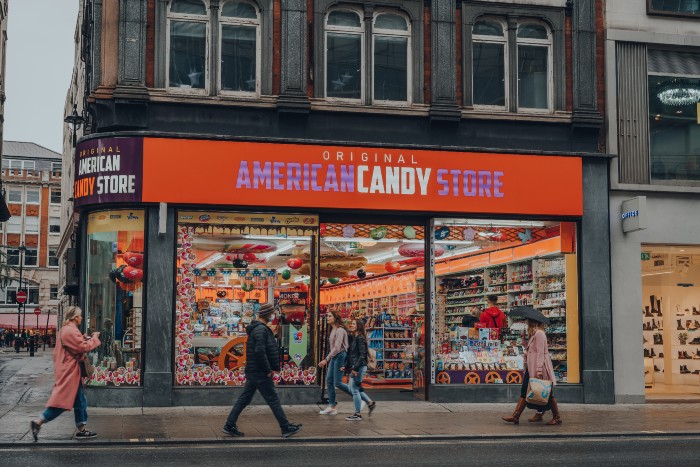// MP adds voice to critics over proliferation of American candy stores along Oxford Street
// Westminster Council crackdown on unpaid business rates appears to be making inroads
Landlords have been told to “up their game” to force out the spate of American candy stores that have opened along London’s Oxford Street.
Nickie Aiken MP, who represents Cities of London and Westminster, told landlords to actively turf out tenants at the centre of the claims, warning that more shoppers were choosing to visit other London retail hubs over the West End.
She said: “There should be a lot more rigour in the way they check out their tenants. Landlords need to take responsibility because Oxford Street at the moment is just looking less and less appealing.”
Westminster Council is currently investigating 30 US-style candy shops, which have taken prime locations in the West End in recent years, and are accused of business rates evasion.
The council claims the 30 stores have failed to pay a collective £7.9 million in taxes, pointing to a situation where the tenants set up shell companies which quickly dissolve and make it difficult to recover debt using bailiffs or insolvency action.
In announcing its crackdown, Westminster City Council said it had seized counterfeit and illegal goods from American candy and souvenir stores in the past six months, including unsafe vapes.
Councillor Adam Hug said they were “not only an eyesore but a threat to the status of what is supposed to be the nation’s premier shopping street” and described the outlets as “far from regular and legitimate businesses”.
A spokesperson said that very few of the stores were “serving sufficient customers to be commercially viable” and added: “Instead, we believe that these properties are used to avoid business rate bills and possibly commit other offences.”
READ MORE: The American candy shop scandal: how sweets led to decay on Oxford Street
The issue relates to where the freeholder or long leaseholder would normally have to pay business rates on an empty store but can pass them on to an occupier.
The freeholder or long leaseholder allegedly lets to an intermediary company, who in turn lets to the candy stores, usually on licences for minimal rents. Forming multiple limited companies, these operations become near impossible to trail.
While closure of the candy stores would be welcome, it will also add to the multiple vacancies along the street, plus the loss of department stores Marks & Spencer, Debenhams and House of Fraser, while John Lewis is downsizing.
More recently, some of the sweet shops have begun morphing back into suitcase shops in an effort to avoid wider scrutiny.
Click here to sign up to Retail Gazette‘s free daily email newsletter


















